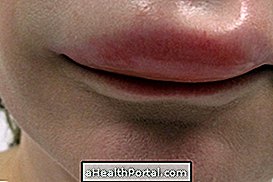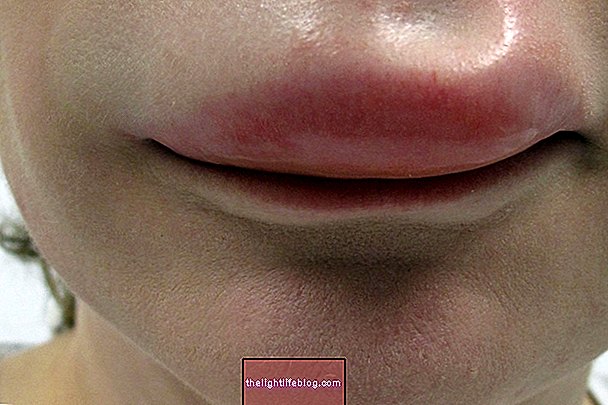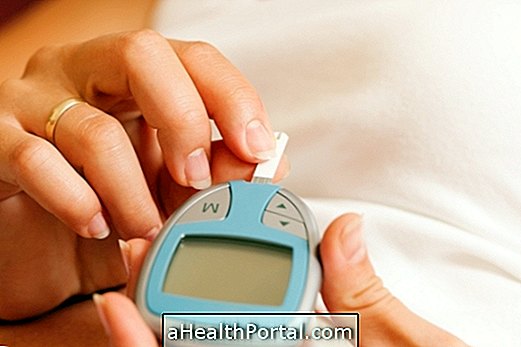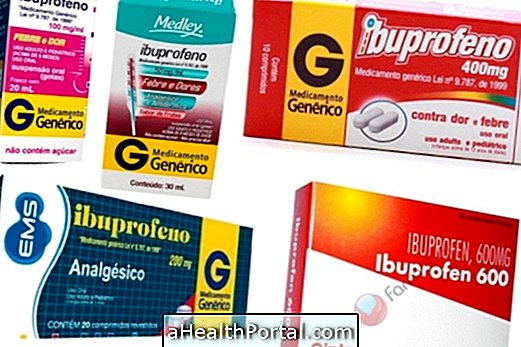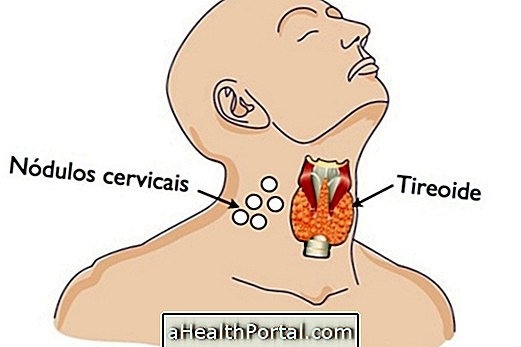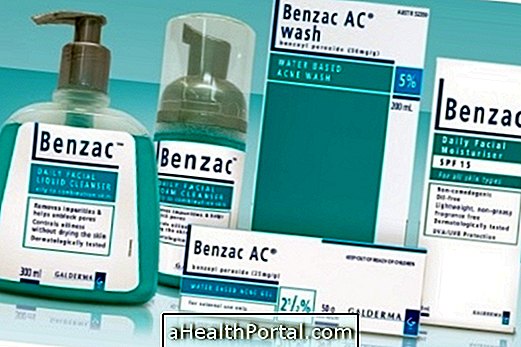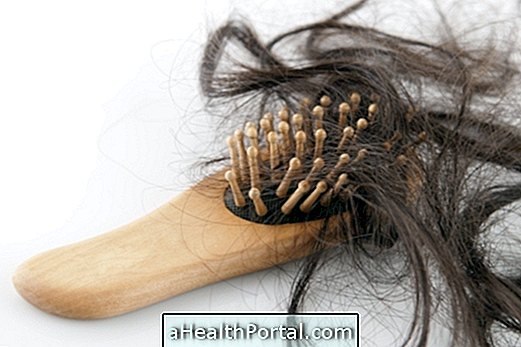Allergy in the hands is a contact dermatitis, also called eczema, which occurs when there is contact of an aggressive agent with the hands. Symptoms include redness and itching of the hands, and may appear immediately or up to 12 hours from contact with the aggressor substance.
The most common aggressive agents are detergents and cleaning products but other situations that may also cause allergy are getting a tattoo with henna; wear jewelry, such as rings and bracelets, or dip hands in buckets of paint or solvent, for example.
Symptoms of allergy in the hands
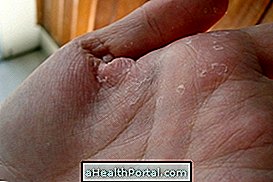



The symptoms of allergy in the hands are itching, redness, swelling and peeling of the skin of the palm and between the fingers. This allergy can be located in one hand part, in just one hand, or be equal in both hands at the same time. In less severe cases the hands may be only slightly dry and with a slight flaking, but in the most severe cases these symptoms are more intense.
Hand allergy may be confused with psoriasis, which manifests with hand scaling and dryness, but sometimes can also be confused with dyshidrosis, which causes balls and intense itchy hands, and it is therefore important to consult your doctor whenever the symptoms of allergy in the hands are present.
The most appropriate doctor to evaluate this change is the dermatologist who can arrive at the diagnosis of dermatitis or eczema only when observing the appearance of the hands.
Hand allergy treatment
The treatment for allergy in the hands, should be indicated by the doctor, but in general, it is advised:
- Always wear rubber gloves whenever you wash dishes, clothes or use other cleaning products to avoid direct skin contact with this type of product;
- Avoid washing your hands very often, even if you wash only with water, but if it is extremely necessary, always apply a layer of moisturizing cream on your hands soon afterwards;
- In less severe cases, when there is still no inflammation, always use moisturizing creams with urea and soothing oils that reduce local irritation on days when the skin is more irritated and sensitive;
- In severe cases, where there are signs of inflammation, it may be necessary to pass some hand allergy ointment or anti-inflammatory cream with corticosteroids, such as betamethasone, which should be prescribed by the dermatologist;
- When there are signs of infection in the hands, the doctor may prescribe medications such as prednisone for 2 to 4 weeks;
- In cases of chronic allergy, which does not improve with treatment for 4 weeks, other remedies may be indicated as azathioprine, methotrexate, cyclosporine or alitretinoin.
Some complications that can occur when the allergy in the hands is not properly treated are bacterial infection by staphylococci or streptococci, which can form pustules, crusting and pain. When there is dermatitis on the tips of the toes, the nails can be affected, becoming deformed, and in addition, the allergy can spread, affecting also the forearms and even the feet.
What can cause allergy in the hands
Usually hand allergies are not caused by just one factor, but a combination of various factors such as genetic predisposition, contact with potentially irritating cleansers such as soap, detergent, chlorine, paint, solubles, frequent exposure to cold or heat, and frequent skin friction.
In this case, the products remove the natural protection of the skin, lead to dehydration of the skin and eliminate the lipid layer, and all this leaves the skin of the hands more dry and unprotected, facilitating the proliferation of microorganisms, and therefore there may be signs of aggravation.
People who are more likely to develop contact dermatitis in the hands are those who work as painters, hairdressers, butchers, health care professionals because they have to wash their hands very often, cleaning employees and general services through frequent contact with cleaning products. However, anyone can have a picture of allergies in their lifelong hands.

